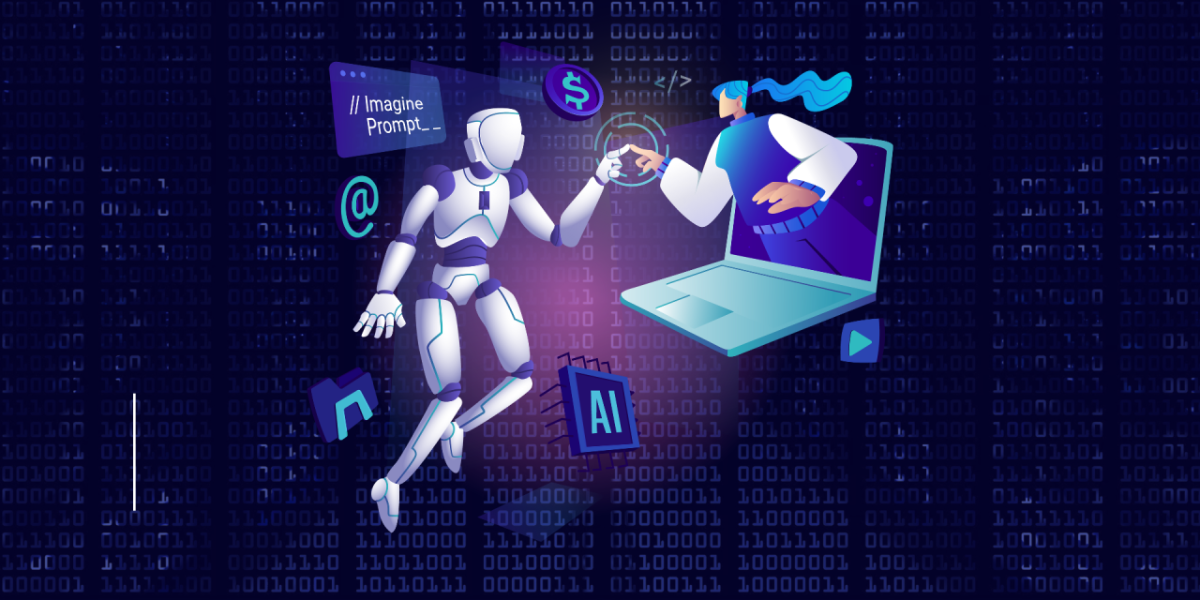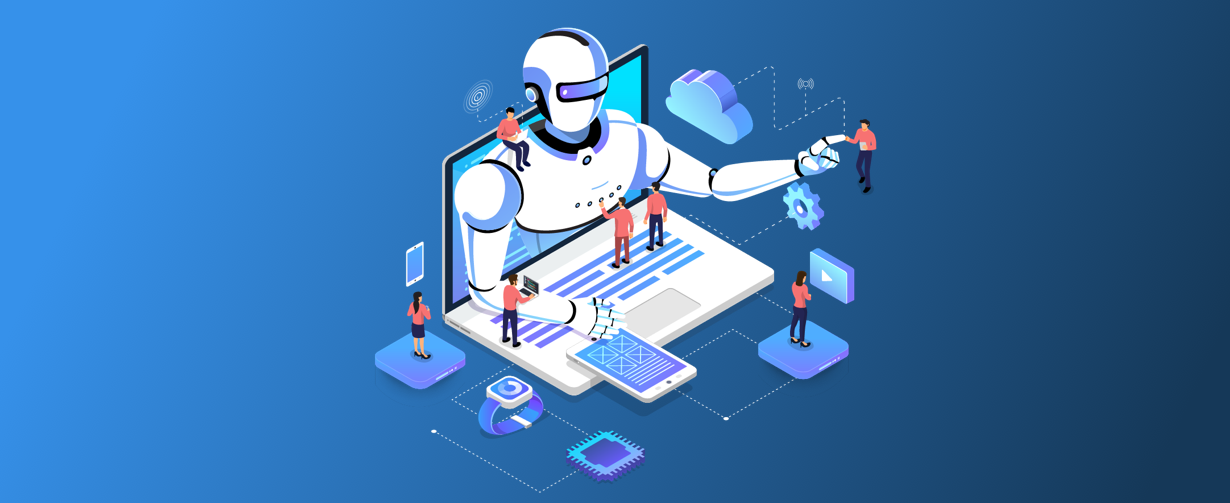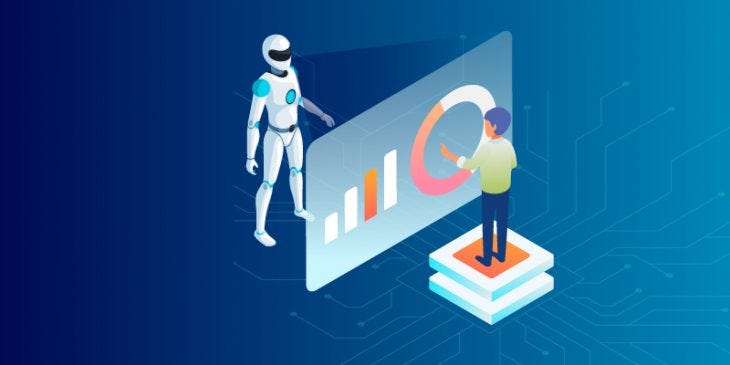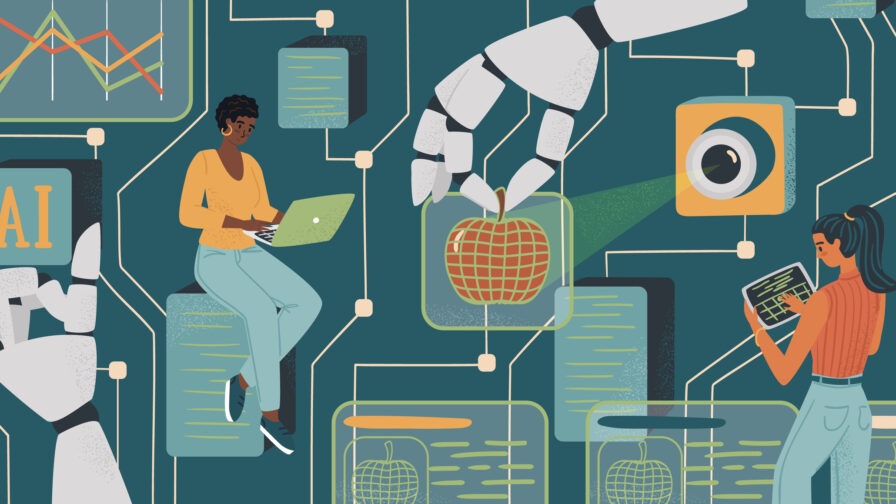14 Top Tools for Building Custom AI Model

What is a Custom AI Model?
A custom AI model is a tailored artificial intelligence solution to meet specific business needs. Unlike generic models, custom AI models are built with particular data sets and unique objectives in mind.
This personalization ensures the AI can address specific challenges and optimize performance in targeted areas.
Importance of Custom AI Models
Custom AI models offer significant advantages over off-the-shelf solutions. By aligning closely with a company’s data and goals, they deliver more accurate insights and better performance.
These models can adapt to specific industry requirements, ensuring higher efficiency and effectiveness. Investing in custom AI development can lead to innovative solutions, competitive advantages, and enhanced operational efficiency.
Understanding Custom AI Model Customization

Custom AI Model Customization Explained
Custom AI model customization involves tailoring artificial intelligence models to meet specific business requirements. This process ensures that the AI models are optimized for an organization’s unique data, goals, and challenges.
Using custom machine learning models, businesses can achieve higher accuracy and better performance. Customization can include adjusting algorithms, fine-tuning parameters, and integrating specific features that align with business objectives.
Personalized Custom AI Solutions for Businesses
Personalized AI solutions are critical for businesses looking to leverage the full potential of artificial intelligence. These solutions are designed to address a business’s specific challenges and opportunities.
For instance, a retail company might use a custom AI model to analyze consumer behavior and optimize inventory management. Meanwhile, a healthcare provider could develop a custom AI solution to predict patient outcomes and improve treatment plans.
By investing in custom AI tools, businesses can achieve targeted results, enhance decision-making processes, and drive innovation.
Also Read: How to Transform your Business with Generative AI Development Services
Getting Started with Custom AI Model Development
Prerequisites for Building Custom AI Models
Before diving into custom AI model development, it’s crucial to understand the necessary prerequisites. First, you need a solid dataset. High-quality data is the backbone of any successful AI model. Ensure your data is clean, relevant, and comprehensive.
Next, familiarize yourself with AI basics, including machine learning algorithms and neural networks. Having a skilled team of data scientists and AI engineers is also essential.
Lastly, choose the right tools and platforms for your specific needs, such as TensorFlow, PyTorch, or AutoML platforms.
Choosing the Right Development Method
Selecting the right method for developing custom AI models depends on your resources, expertise, and goals. Here are three primary approaches:
No-Code/Low-Code Platforms
- No-code and low-code platforms are ideal for beginners or those with limited technical skills.
- These platforms, like Google’s AutoML and Microsoft’s Power Automate, offer user-friendly interfaces that simplify the process of building and deploying AI models. They are cost-effective and reduce the development time significantly.
AutoML
- AutoML tools provide a balance between ease of use and customization. They automate the model selection, training, and tuning processes, making them accessible to users with moderate technical knowledge.
- Platforms like H2O.ai and DataRobot allow for more customization than no-code options while simplifying many complex tasks involved in AI model development.4
Traditional Programming and Machine Learning Libraries
- Traditional programming with machine learning libraries is the best approach for those with advanced technical skills and the need for highly customized models.
- Developers can use libraries such as TensorFlow, PyTorch, and Scikit-Learn to build and fine-tune models to meet specific requirements.
- This method offers the highest level of flexibility and performance but requires extensive knowledge in programming, machine learning, and AI.
Must Read: How to Hire a World Class Generative AI Software Engineer
Building Custom AI Models
When to Build a Custom AI Model
Deciding when to build a custom AI model depends on your business needs and objectives. Custom AI models are ideal when you require tailored solutions that off-the-shelf models cannot provide.
For instance, if you need specific insights from unique data sets or have specialized tasks, a custom AI model is the best choice. Additionally, businesses looking to gain a competitive edge through innovative technology should consider investing in custom AI development.

Steps to Create a Custom AI Model
Creating a custom AI model involves several key steps to ensure it meets specific requirements and performs optimally. Here’s a concise guide:
- Define the Problem: Clearly articulate the problem you want the custom AI model to solve. Identify the objectives and the scope of the project to guide the subsequent steps.
- Collect and Prepare Data: Gather relevant data that the model will learn from. This step often involves data cleaning, normalization, and transformation to ensure quality and consistency. Label the data if necessary, as this is crucial for supervised learning.
- Select the Model Architecture: Choose the appropriate AI model architecture based on the problem. For instance, neural networks are suitable for image and speech recognition, while decision trees may work well for classification tasks.
-Popular frameworks like TensorFlow and PyTorch offer various pre-built models to start with.
- Train the Model: Split the dataset into training and validation sets. Use the training set to teach the model and the validation set to tune its parameters.
-Training involves feeding data into the model and adjusting weights based on the error rates using algorithms like backpropagation.
- Evaluate the Model: Assess the model’s performance using metrics such as accuracy, precision, recall, and F1 score. Ensure the model generalizes well to new, unseen data.
- Deploy the Model: Once satisfied with the model’s performance, deploy it to the desired environment (cloud, edge devices, etc.). Ensure it can handle real-world data and integrate seamlessly with existing systems.
- Monitor and Maintain: Continuously monitor the model’s performance post-deployment. Update and retrain the model as necessary to adapt to new data and changing conditions.
By following these steps, you can develop a robust custom AI model tailored to your specific needs.
Key Considerations in Custom AI Model Training
- Objective Definition: Clearly define the goals and objectives of the Custom AI Model to align with specific business or research needs.
- Data Quality: Ensure high-quality, relevant, and diverse data to improve the model’s accuracy and robustness.
- Data Preprocessing: Conduct thorough data cleaning, normalization, and augmentation to prepare the dataset for effective training.
- Model Selection: Choose the appropriate model architecture (e.g., neural networks, decision trees) that suits the specific problem domain and data characteristics.
- Computational Resources: Assess and secure adequate computational power, including GPUs or TPUs, to handle intensive training processes.
- Training Algorithms: Select suitable training algorithms and optimization techniques to enhance model performance and convergence speed.
- Hyperparameter Tuning: Perform systematic hyperparameter tuning to optimize model performance and reduce overfitting.
- Validation and Testing: Use separate validation and testing datasets to evaluate model performance and ensure generalizability.
- Ethical Considerations: Address ethical issues such as bias, fairness, and transparency in model development and deployment.
- Scalability and Maintenance: Plan for scalability and ongoing maintenance to ensure the Custom AI Model remains effective and up-to-date with evolving data and requirements.
Custom Neural Networks and Deep Learning Models

Neural networks, particularly deep learning models, are powerful tools for building custom AI solutions. These models excel at handling large datasets and complex patterns.
For instance, convolutional neural networks (CNNs) are ideal for image recognition tasks, while recurrent neural networks (RNNs) are suited for sequential data like time series.
Customizing these networks involves selecting the right architecture, configuring layers, and fine-tuning parameters to achieve the desired performance. Deep learning models can significantly enhance the capabilities of your custom AI solutions.
Also Read: Everything you need to Know About a Generative AI Development Company
Optimizing Custom AI Models
AI Model Optimization Techniques
Optimizing custom AI models is essential for achieving maximum efficiency and performance. One effective technique is hyperparameter tuning, which involves adjusting the parameters of the model to find the optimal configuration.
Another technique is feature engineering, where you select, modify, and create new features from your data to improve the model’s accuracy.
Regularization methods, such as L1 and L2 regularization, can also help prevent overfitting by adding a penalty for larger coefficients in the model.
Fine-Tuning AI Models
Fine-tuning AI models involves making minor adjustments to a pre-trained model to better fit specific tasks.
This process can significantly enhance the performance of custom AI models by leveraging existing knowledge and adapting it to new data.
Transfer learning is a common approach where a model trained on a large dataset is further trained on a smaller, domain-specific dataset. This method saves time and resources while achieving high accuracy and relevance to the specific application.
Enhancing AI Model Performance
Enhancing AI model performance requires continuous monitoring and iteration. Regularly update your model with new data to keep it relevant and accurate.
Implementing cross-validation techniques can help assess the model’s performance and identify potential improvements. Additionally, utilizing advanced optimization algorithms, such as stochastic gradient descent or Adam, can enhance the model’s efficiency and accuracy.
By maintaining a robust pipeline for data preprocessing, model training, and evaluation, you can ensure your custom AI models deliver optimal results.
Must Read: How to Transform Your Business with Generative AI Consulting Service
Challenges in Developing Custom AI Models

Developing custom AI models comes with several challenges. One major hurdle is acquiring high-quality data, which is crucial for training accurate models. Additionally, the complexity of choosing the right algorithms and tuning them can be daunting.
Another significant challenge is ensuring that the model generalizes well to new data rather than overfitting the training data. These issues require careful planning and expertise to navigate successfully.
1. Addressing Data and Overfitting Issues
Overfitting occurs when a model learns the training data too well, including its noise and outliers, which hampers its performance on new data. To combat this, techniques such as cross-validation and regularization can be employed.
Cross-validation helps in assessing how the model performs on different subsets of the data, ensuring it generalizes well. Regularization adds a penalty for large coefficients, simplifying the model and reducing overfitting.
Additionally, using more data and applying data augmentation techniques can improve model robustness.
2. Tackling Bias and Regulation Hurdles
Bias in AI models can lead to unfair outcomes and affect the model’s credibility. It’s essential to ensure diverse and representative training data to mitigate bias. Regular audits of the AI models can help identify and address biases.
Furthermore, adhering to regulatory standards and guidelines is crucial for ethical AI deployment. Compliance with data privacy laws, such as GDPR, ensures that AI systems respect user privacy and operate transparently.
3. Managing Development Costs
The cost of developing custom AI models can be high, involving expenses for data acquisition, computing resources, and skilled personnel.
To manage these costs, businesses can leverage cloud-based solutions that offer scalable resources at a fraction of the cost of on-premises infrastructure.
Additionally, using pre-trained models and transfer learning can reduce the time and cost associated with training models from scratch. Strategic planning and efficient resource allocation are key to keeping development costs under control.

Deploying Custom AI Models
AI Model Deployment Strategies
Deploying custom AI models involves several strategic steps to ensure they function optimally in a real-world environment. One effective strategy is containerization, using tools like Docker to package the model and its dependencies.
This approach ensures consistency across different deployment environments. Another strategy is to use cloud-based platforms such as AWS, Google Cloud, or Azure, which offer scalability and various services to support AI model deployment.
Additionally, continuous integration and continuous deployment (CI/CD) pipelines can automate the process, ensuring seamless updates and maintenance.
Integrating Custom AI Models into Existing Systems
Integrating custom AI models into existing systems requires careful planning and execution.
Start by ensuring compatibility between the AI model and the current infrastructure. Use APIs to facilitate communication between the AI model and other systems.
It’s crucial to involve IT and development teams to handle any technical challenges that arise. Testing the integration thoroughly is essential to identify and resolve issues before full-scale deployment.
By following these steps, you can ensure a smooth integration process that enhances the overall functionality of your systems.
Scalability and Adaptability of AI Models
Scalability and adaptability are critical for the long-term success of custom AI models. Scalability ensures that your AI model can handle increased workloads as your business grows.
Implementing scalable architectures, such as microservices, allows you to scale individual components without affecting the entire system. Adaptability, on the other hand, ensures that your AI model can evolve with changing data and requirements.
Regular updates and retraining with new data are necessary to maintain the model’s relevance and accuracy. By focusing on scalability and adaptability, you can ensure that your AI models continue to deliver optimal performance over time.
Types of Custom AI Models
Custom Machine Learning Models
- Supervised Learning Models: Trained on labeled data for tasks like classification and regression.
- Unsupervised Learning Models: Used for clustering, anomaly detection, and association tasks without labeled data.
- Reinforcement Learning Models: Learn through interactions with the environment, optimizing actions based on rewards.
Custom Deep Learning Models
- Convolutional Neural Networks (CNNs): Specialized in processing grid-like data, primarily used in image recognition and computer vision.
- Recurrent Neural Networks (RNNs): Ideal for sequential data tasks like language modeling and time-series forecasting.
- Generative Adversarial Networks (GANs): Used for generating new data samples, popular in image and video synthesis.
Custom Natural Language Processing (NLP) Models
- Transformer Models: Advanced architectures like BERT and GPT, used for a variety of NLP tasks including text generation and translation.
- Named Entity Recognition (NER) Models: Identify and classify entities in text into predefined categories.
- Sentiment Analysis Models: Determine the sentiment expressed in a piece of text.
Custom Computer Vision Models
- Object Detection Models: Identify and locate objects within images or videos.
- Image Segmentation Models: Partition an image into segments, often used in medical imaging and autonomous driving.
- Face Recognition Models: Identify and verify human faces from images or videos.
Custom Recommendation Systems
- Collaborative Filtering Models: Recommend items based on user behavior and preferences.
- Content-Based Filtering Models: Recommend items based on item attributes and user profiles.
- Hybrid Models: Combine collaborative and content-based approaches for improved recommendations.
Custom Anomaly Detection Models
- Statistical Models: Detect outliers based on statistical properties of the data.
- Machine Learning Models: Use clustering or classification techniques to identify anomalies.
- Hybrid Models: Integrate statistical and machine learning approaches for robust anomaly detection.

Top Tools and Platforms for Custom AI Models
AutogenAI
AutogenAI offers an intuitive platform for developing custom AI models. It provides tools for automating model creation and optimization, making it accessible for users with varying levels of expertise.
Together AI
TogetherAI focuses on collaborative AI development, allowing teams to work together seamlessly on custom AI projects. Its platform supports a wide range of AI applications, from natural language processing to computer vision.
Sarvam
Sarvam delivers a comprehensive suite of AI tools designed to build and deploy custom models. Its platform emphasizes scalability and adaptability, making it suitable for businesses of all sizes.
Kaedim Inc.
Kaedim Inc. specializes in 3D AI models, offering unique tools for creating detailed and accurate 3D representations. Their technology is particularly beneficial for industries like gaming and virtual reality.
Instabase
Instabase provides a robust platform for custom AI model development, focusing on automating complex business processes. Its tools are designed to integrate seamlessly with existing systems, enhancing overall efficiency.
Sprinto
Sprinto offers a streamlined platform for quickly developing and deploying custom AI models. Its focus on ease of use and rapid deployment makes it an excellent choice for businesses needing quick AI solutions.
Parloa
Parloa specializes in conversational AI, providing tools for building advanced chatbots and virtual assistants. Its platform supports natural language processing and machine learning, enabling highly interactive and intelligent AI solutions.
PreAct Technologies
PreAct Technologies focuses on real-time AI solutions, offering tools for developing models that require immediate data processing and response. Their platform is ideal for applications in autonomous vehicles and robotics.
KineticaDB
KineticaDB provides a powerful database platform optimized for AI model development. Its technology supports real-time data analysis and machine learning, making it suitable for high-performance AI applications.
NuMind
NuMind offers tools for developing custom AI models with a focus on natural language processing. Their platform supports the creation of sophisticated language models for various applications.
Jaxon
Jaxon provides a platform for developing custom AI models that focus on predictive analytics. Its tools help businesses forecast trends and make data-driven decisions.
Langdock
Langdock specializes in language models, providing tools for creating custom AI solutions in translation, sentiment analysis, and other linguistic applications.
Baseten
Baseten offers a user-friendly platform for developing and deploying custom AI models. Its tools are designed to simplify the process, making AI accessible to non-experts.
Fractal
Fractal helps businesses build custom AI models by leveraging advanced AI and machine learning techniques tailored to specific industry needs.
Their services include computer vision, natural language processing, generative AI, and cognitive automation, ensuring scalable and responsible AI solutions that enhance business processes and decision-making capabilities.

How Fx31 Labs Can Help You with Custom AI Models
Expertise in Custom AI Development
Fx31 Labs excels in creating custom AI models tailored to your specific business needs. Our team of seasoned AI developers and data scientists brings extensive experience in developing advanced AI solutions.
We utilize state-of-the-art technologies and methodologies to ensure that our custom AI models are efficient, scalable, and precisely aligned with your goals.
Proven Track Record with Client Success Stories
Our track record speaks for itself. Fx31 Labs has successfully delivered numerous custom AI solutions across various industries.
For instance, we helped a healthcare provider develop a predictive model that improved patient outcomes significantly.
Our AI models have also empowered retail businesses to optimize inventory management and enhance customer experiences. These success stories reflect our commitment to delivering impactful AI solutions.
Comprehensive Services from Development to Deployment
At Fx31 Labs, we offer end-to-end services for custom AI model development. From initial consultation and data collection to model training, testing, and deployment, we handle every step of the process.
Our comprehensive approach ensures that your custom AI model is robust and ready to deliver immediate value. We also provide ongoing support to maintain and refine the model as your business evolves.
Flexible Engagement Models Tailored to Your Needs
Understanding that every business has unique requirements, Fx31 Labs offers flexible engagement models. Whether you need a full-scale AI solution or specific expertise to complement your in-house team, we can tailor our services to fit your needs.
Our engagement models are designed to provide maximum value, ensuring that you receive the best possible support for your AI initiatives.
Future Trends in Custom AI Models
Emerging Trends and Technologies
The future of custom AI models is shaped by several emerging trends and technologies. One key trend is the integration of AI with Internet of Things (IoT) devices, enabling real-time data analysis and decision-making.
Another significant development is the rise of edge AI, which allows AI models to operate directly on devices rather than relying on cloud computing, reducing latency and improving efficiency.
Additionally, advancements in natural language processing (NLP) and computer vision are expanding the capabilities of custom AI models, making them more versatile and powerful.
Predictions for the Future of AI Customization
As AI technology continues to evolve, the customization of AI models is expected to become even more sophisticated. One prediction is that AI models will become more adaptive, learning and evolving autonomously based on new data and changing conditions.
Synthetic data for training AI models will also become more prevalent, addressing the challenges of data scarcity and privacy concerns.
Moreover, AI customization will likely become more accessible to non-experts, thanks to no-code and low-code platforms that simplify the development process.

The Role of Custom AI Models in Future Innovations
Custom AI models will play a pivotal role in driving future innovations across various industries. In healthcare, personalized AI solutions will enhance diagnostic accuracy and treatment plans. In finance, custom AI models will improve fraud detection and risk management.
Manufacturing will benefit from AI-driven automation and predictive maintenance. As these models become more sophisticated, they will enable groundbreaking advancements, transforming how businesses operate and compete in the market.
Conclusion
This comprehensive guide explores the world of custom AI models, highlighting their importance and benefits. Custom AI models provide tailored solutions that cater to specific business needs, ensuring higher accuracy and efficiency. We discussed the steps to start custom AI model development, from understanding prerequisites to choosing the right development method.
We delved into the challenges of developing custom AI models, such as data quality, overfitting, and bias, and provided strategies to overcome these issues. Additionally, we reviewed top tools and platforms like AutogenAI and Sarvam, which aid in creating custom AI models.
Fx31 Labs was showcased as a leader in custom AI development, emphasizing its expertise, client success stories, and comprehensive services.
Looking to the future, we identified emerging trends and technologies that will shape the evolution of custom AI models, such as quantum computing and federated learning.
